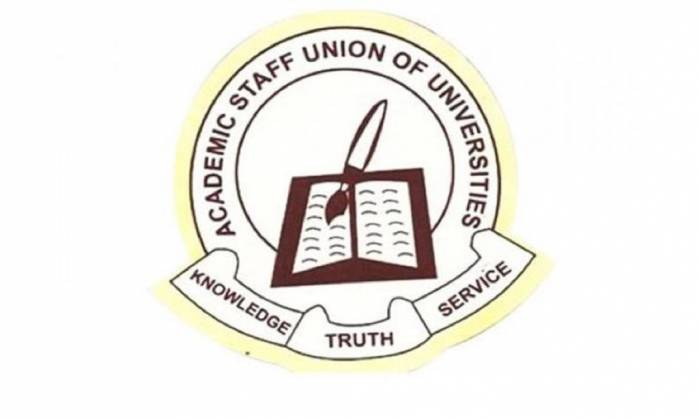My views about the Academic Staff Union of Universities (ASUU) changed after I bumped into, and read, an article published on an online platform www.statesman.ng titled ‘ASUU is the problem of education in Nigeria’. The title attracted me and I wanted to know how ASUU is the problem. It was written by Prof. Godspower Ekuobase of the Department of Computer Science at the University of Benin. Prior to reading that article, I had always believed that ASUU was genuinely motivated in all its agitations against government. I had felt that government was the problem while the Union was altruistic in its campaigns which always led to the shut-down of public universities. But reading Prof. Ekuobase where he said “my Nigerian universities, your midwife has become your murderer, prosecutor, advocate and judge” made me think differently. Prof. Ekuobase argued convincingly to show that indeed, ASUU is responsible for the problem of university education in Nigeria.
He put it this way: “I pity FGN (Federal Government of Nigeria). ASUU will recommend to FGN through NUC (National Universities Commission) that all is well and, in most cases, excellent and the same ASUU is fighting FGN through the Presidency and labour ministry that everything is in total collapse. Who then is the problem, FGN or ASUU? Have we heard ASUU complain to NUC about resource verification or accreditation instruments or exercises? No! Does NUC (FGN) report and enforce ASUU’s findings and recommendations on which university or its programmes should be sustained? Yes! Who made strikes part of our university calendar? ASUU! Who prepares the university for accreditation or resource verification? ASUU! Who are the phoney resource persons particularly in private universities? ASUU! Who does accreditation or resource verification? ASUU! Who affirms that our universities and its programmes are particularly in good form? ASUU! Who awards degrees? ASUU! Who is saying that our university system is dilapidated and substandard? ASUU!
This is an eye-opener for me because it was written by a member of the Union who has decided to call a spade by no other name so that Nigerians may begin to properly situate issues whenever ASUU rises to agitate against government as it is currently doing against the directive of President Muhammadu Buhari to enroll all those on FG payroll onto the Integrated Payroll and Personnel Information System (IPPIS). ASUU has cried to high heavens since the decision was ordered. It has kicked and shadow-boxed. It has blackmailed and threatened strikes in the guise of fighting for a better university system. But their real pain lies behind fact that the IPPIS has the capacity to expose fraud and multiple earnings in the university salary system, a practice that makes the ghost worker syndrome an intractable reality in Nigeria.
READ ALSO: Office Of Accountant General Of The Federation Debunks Deduction Claims By ASUU
IPPIS captures every staff of the Federal Government. It will eliminate the high incidence of ghost workers. As at June 2019, some N274b had been saved through operation of the scheme. This is money that would have been lost to Federal government employees who also prefer to be known as ghosts. However, these don’t seem to excite ASUU as a union despite fact that many of its members are breaking out and enrolling unto the scheme. Prof. Ekuobase said: “the truth is that majority of the lecturers in Nigerian universities are sick and tired of the incessant strike by ASUU and the lack of innovative means of engaging government, as evident by the about 55% of its members who stood with the FGN on the deployment of IPPIS despite ASUU’s intimidation”.
ASUU seems bent on sabotaging the system. Despite efforts by the federal government to explain details of the payment platform and how it works, which has made all federal universities to compile and submit their payrolls for integration onto the IPPIS platform, ASUU is still in the trenches kicking and raising hail. So, who is ASUU working for? Members of ASUU are employees of the federal government and ought to accept the directives of government towards curbing the embarrassing host worker syndrome that robs Nigeria of financial resources that could be deployed to other uses. How could the members be individually saying yes and joining IPPIS but their union is kicking? Something does not connect properly here.
I understand that part of ASUU’s grouse is that some payment parameters may not be captured by the IPPIS and, this could lead to a drop in earnings. But the fact still remains that every earning parameter including allowances for lecturers, and other workers on the federal government payroll, are calculated and approved by the National Salaries, Income and Wages Commission (NSIWC). Implication of this is that no earning including service-specific allowances and deductibles, or otherwise, which are not approved by the federal government through the NSIWC will be captured on the IPPIS platform. Also, the platform works with bank verification number (BVN) to capture individual names and eliminate multiple name entries. The system is such that every statutory deduction is remitted to the appropriate agency no matter how late. So, what is there to fear when even backlogs can be appropriately traced, calculated and paid as approved by NSIWC? Is ASUU suggesting that it should be exempted from this procedure which has returned some sense and sensibility in the management of federal government payroll? Or, is ASUU scared that the IPPIS may bring to an end the regime of indiscriminate salary structure in the university system and unify them such that salary and allowances of lecturers and professors become the same across all federal universities?
However, I agree to argument that the system is not foolproof. No system created by man is. But we make progress working and improving on innovations that help us to fight fraud and corruption in our government system. No system works perfect until it has been tried and adjusted to suit needs. This is the least one expects members of ASUU, as men and women of knowledge, to accept and appreciate. The reality is that IPPIS has come to stay. We must begin to learn how to live with it and its shortcoming till they are perfected. The over 800,000 workers so far captured on the payment platform cannot be wrong. Therefore, ASUU ought to begin to rephrase its objections and see how it can creatively make the platform to succeed and serve Nigeria better in eliminating ghost workers rather than its proposal for an alternative payment system called University Transparency and Accountability Solution (UTAS), created and developed by it for its members only. There cannot be a different soup for ASUU at this time. What the federal government has done in this regard, just like it did with the Treasury Single Account and BVN, is for the good of Nigeria. ASUU cannot be, as Prof. Ekuobase said, “a clog in the wheel”.











